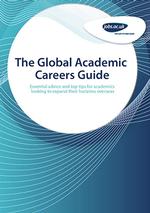
A recent trend I am observing is around hiring manager expectations on Thank You follow ups after an interview. Here are some general tips to start:
Why are thank you letters important?
1. To reaffirm your interest in the employer
2. To mention something that you may have omitted during the interview
3. To illustrate that you are courteous and professional
When are thank you letters appropriate?
1. After every job interview (in-person interviews and phone interviews)
2. After every informational interview or networking meeting
3. After someone has helped you with your job search process (i.e., referred your resume to someone else, offered you contact information, etc).
What is the purpose of the letter, and what should it include?
1. Be short, concise, and to the point, no more than three paragraphs; only thank the person once
2. Express gratitude for the opportunity to interview or for job search assistance
3. Mention aspects of the interview that were of particular interest to you
4. Grant you the opportunity to add something that you may have not mentioned during the interview that is relevant to your job search or to your application
TIP #1: If you have writer’s block, do not worry! This is not a time to be extremely creative; a nice, appreciative thank you communication is fine. How should a thank you letter be sent?
Thank you letters should:
1. Be sent immediately, especially if you are expecting the job decision quickly
2. Be sent formally and professionally, regardless of whether it is by email or handwritten
3. Be sent to everyone that you interviewed with; each letter should be modified and unique
So the trend in question is about timeliness. While there was period when I was recommending handwritten notes, I no longer do so because of the time factor involved with mailing. Hiring managers now have an expectation that a truly interested job hunter will have sent a thank follow up within one business day and no longer. That is hard on a job hunter who is currently employed and had to take time away from his/her work to take the interview, but I strongly urge you to send an email even the same evening of the day you interviewed. Doing so says a great deal about your level of interest.
Thinking about your next career move?
Check out our latest job postings or create a free account to save your job searches and customize your daily job alerts.


